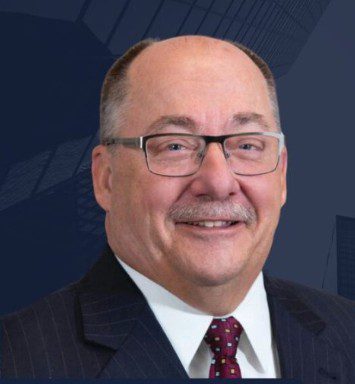
WILMINGTON, Del. (July 21, 2025) – Delaware’s construction industry is facing a growing workforce shortage made worse by outdated apprenticeship rules and burdensome licensing requirements, said Ed Capodanno during Monday morning’s “A Better Discussion” webcast hosted by Jane Brady, Chair of “A Better Delaware”.
Capodanno, who recently retired after 32 years as president of Associated Builders and Contractors (ABC) of Delaware, said the state must act now to rebuild its skilled labor pipeline.
“The average age of a construction worker in Delaware is 45,” Capodanno said. “That might seem young in some professions, but in the trades, that’s old. Your body can’t take 25 or 30 years of heavy labor without some consequence.”

He emphasized that expanding access to apprenticeship programs is the key to reversing the trend, but current state law restricts employers to just one apprentice for every four journeymen on public projects—a ratio Capodanno called “outdated and holding us back.”
“We’ve got small and mid-size contractors who want to bring in apprentices, but they can’t because the numbers don’t work,” he said. “If we want to rebuild the workforce, we need flexibility.”
ABC Delaware pushed for a temporary 1-to-1 ratio during the pandemic recovery to accelerate hiring and training. That proposal was rejected twice by the Carney administration, Capodanno said, despite widespread industry support.
“We weren’t asking for a permanent change—just a two-year adjustment to help recover from a massive labor loss,” he said. “We lost thousands of skilled workers after the 2008 recession and again during the pandemic. It takes years to rebuild that pipeline.”
Capodanno said Delaware’s vocational-technical schools remain a strong source of talent—ABC partners with them to offer jobsite tours, mentoring, and credentialed instruction—but the industry has been shut out of traditional high schools.
“We’ve lost access to an entire population of students,” he said. “They’ve eliminated shop class and won’t let us come in and talk about careers in the trades. That’s a major gap, especially for kids who may not be college-bound.”
He said construction offers a debt-free career pathway that’s often overlooked. “Apprenticeship means you work during the day, get paid, go to class at night, and finish with no debt and a career,” Capodanno said.
Despite recent setbacks, he noted some charter schools and community organizations are exploring trade-focused programming. ABC has partnered with Project New Start, the Wilmington Hope Commission, and other groups to train underemployed adults in the city.
“When we get involved with training programs that already have people engaged, it works,” he said. “But to truly solve this workforce crisis, we need to get back into traditional high schools. That’s where the students are.”
Capodanno also took aim at what he described as excessive regulation in Delaware’s construction industry. He cited the long list of licenses contractors must obtain to do business across the state—including separate permits for every county and many municipalities.
“We’re the only industry that has to jump through this many hoops,” he said. “A state business license and contractor registry should be enough. It’s no wonder young entrepreneurs think twice about getting started.”
Looking ahead, Capodanno warned of new legislation—namely, Senate Bill 197—that would require union-only labor on all school construction projects. He said it would reduce competition and increase project costs by as much as 25%.
“When you reduce bidders, you reduce competition,” Capodanno said. “And when you reduce competition, you raise prices. It’s not complicated—it’s Economics 101.”
He pointed to a recent state-funded pilot project that received just two bids and came in $3 million over budget. “No Delaware contractor even bid on it,” he said. “That’s what happens when you create barriers to entry.”
Brady closed the program by announcing Capodanno would be joining the board of A Better Delaware, praising his decades of leadership in workforce development and small business advocacy.
“Ed has contributed so much to our workforce and economy,” she said. “He’ll be a tremendous asset to our mission moving forward.”
RELATED STORIES:
Milford LIVE has a team of contributing journalists who cover specific areas of the community. Our Journalist are professional and are paid for their contributions. If you have any questions, corrections, or issues, please reach out to our Publisher and Editor, George Rotsch, at George@DelawareLIVE.com. He can also be reached by phone at 302-354-5730.
Share this Post










